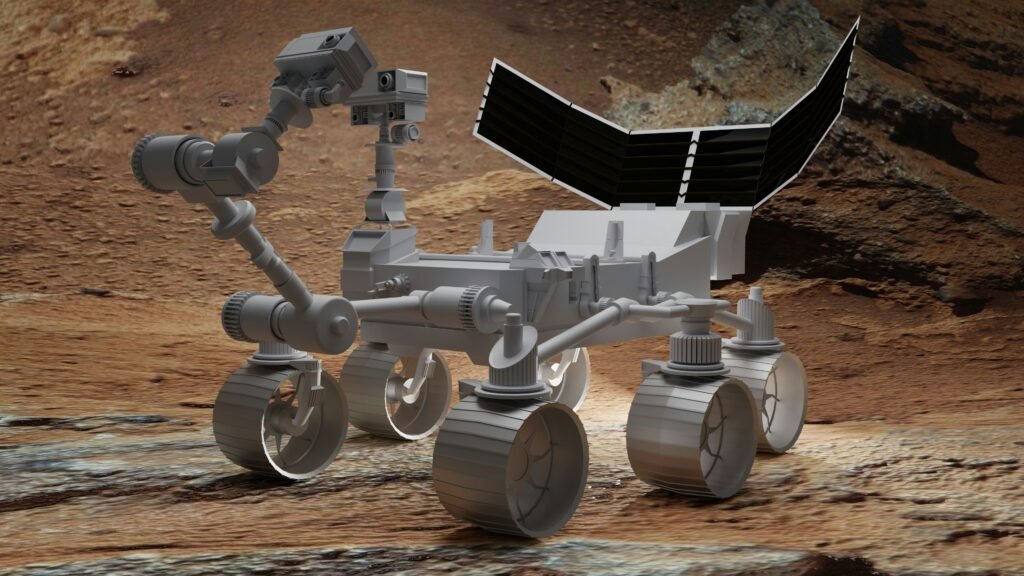
For decades, the idea of living on Mars was a theme found only in science fiction. Today, it’s a real topic of scientific planning and investment. As space exploration accelerates, a bold question arises: Will we see colonies on Mars in our lifetime?
Space agencies like NASA and private companies like SpaceX are actively preparing for human missions to Mars. With serious funding, advanced technologies, and growing public interest, colonizing is not just a dream anymore; it’s becoming a strategy for the future of humanity.
Why Mars?

Among all planets in our solar system, Mars is the most Earth-like. It has:
- A 24.6-hour day
- Polar ice caps
- Seasons and terrain
- Evidence of ancient water
These features make Mars the most suitable planet for long-term human presence. Unlike the Moon, Mars has an atmosphere thin but helpful—and natural resources that could one day support human life.
For this reason, Mars has become the central target of long-term space exploration programs in both the US and UK Space exploration sectors.
The Current State of Mars Missions

Several successful robotic missions have already laid the groundwork:
- NASA’s Perseverance rover is collecting rock samples for future return.
- ESA (European Space Agency) is collaborating with NASA on joint Mars missions.
- The UK Space Agency has supported various Mars research initiatives.
- SpaceX is developing the Starship rocket specifically for deep-space transport to Mars.
These missions focus on analyzing terrain, climate, and the availability of water, all essential elements for future Mars colonies.
SpaceX and the Push Toward Mars Colonization

No company has made headlines about Mars more than SpaceX. Founded by Elon Musk, SpaceX is building reusable rockets and spacecraft designed to transport humans to Mars. The company's vision is clear: establish a self-sustaining Mars colony in the near future.
SpaceX’s Starship aims to carry up to 100 people per trip, with early missions possibly happening within this decade. The plan includes:
- Establishing a base with basic infrastructure
- Using solar power and 3D printing to build habitats
- Extracting water from the soil (regolith)
- Producing fuel from Martian resources for return trips
These efforts are encouraging governments and investors alike to invest in space missions as part of a broader future for humanity.
When Could Mars Colonies Happen?
The timeline for Mars colonies in our lifetime depends on multiple factors:
- Technology Readiness: Rockets, life-support systems, and construction tools need more testing.
- Funding: Colonization requires billions in investment from governments and the private sector.
- International Cooperation: No one country will likely colonize alone. Collaboration will be key.
- Human Health: Radiation, low gravity, and mental stress must be studied and managed.
Despite challenges, experts are optimistic. NASA aims for human landings in the late 2030s, while SpaceX is more aggressive targeting the early 2030s.
If these projections hold, Colonies may begin in our lifetime, starting with temporary habitats and growing into permanent bases.
What Will Mars Colonies Look Like?
Early colonies will likely resemble remote research stations. Key features might include:
- Pressurized living domes
- Greenhouses for food production
- Power plants using solar energy
- Robotic assistance for construction and maintenance
- Communication systems linked to Earth
In time, these outposts could evolve into small towns, with their systems for water recycling, oxygen production, and governance. Though life would be tough, it would also be historic, marking humanity’s first step beyond Earth.
How Will Colonizing Mars Impact Humanity?
The impact of living on Mars would be significant for many reasons:
1. Technological Advancement
The tools and techniques developed for Mars could revolutionize industries on Earth—particularly in energy, robotics, and sustainability.
2. Survival Strategy
Establishing a colony makes humanity “multi-planetary,” reducing the risk of extinction due to global disasters.
3. Cultural Shift
A colony would change how we view ourselves—as Earthlings or as citizens of a solar system.
4. Educational Inspiration
Programs and missions would drive interest in STEM fields, and people around the world would follow space exploration updates regularly.
Public Involvement and Learning Opportunities
You don’t need to be a rocket scientist to get involved. There are many ways people are contributing or preparing:
- Enroll in space-related programs; many institutions now offer degrees and certifications. You can buy space exploration courses focused on planetary science, AI, and life support systems.
- Follow missions to stay updated through NASA, SpaceX, or UK space programs.
- Participating in global challenge competitions like the Mars Society’s habitat design contests welcomes students and professionals alike.
Challenges to Overcome
Colonizing any planet won’t be easy. The main obstacles include:
- Radiation exposure from cosmic rays, as Mars lacks a strong magnetic field
- Low gravity, which may affect bone and muscle health
- Mental health concerns from isolation and distance
- Ethical concerns around planetary protection and resource use
Space agencies and scientists are actively researching solutions, but many of these will require years of testing and development.
Final Thoughts
So, will we see Mars colonies in our lifetime? The answer is: very likely, in some form.
While a full-scale Martian city may still be many decades away, the first Mars colonies, basic human settlements or research bases, are well within reach by the mid-to-late 21st century. With organizations like SpaceX pushing boundaries, and both the US and UK space exploration efforts expanding, we may witness one of the greatest achievements in human history in our lifetime.
For those watching the stars and dreaming big, this is the moment to stay informed, stay curious, and maybe even get involved.






